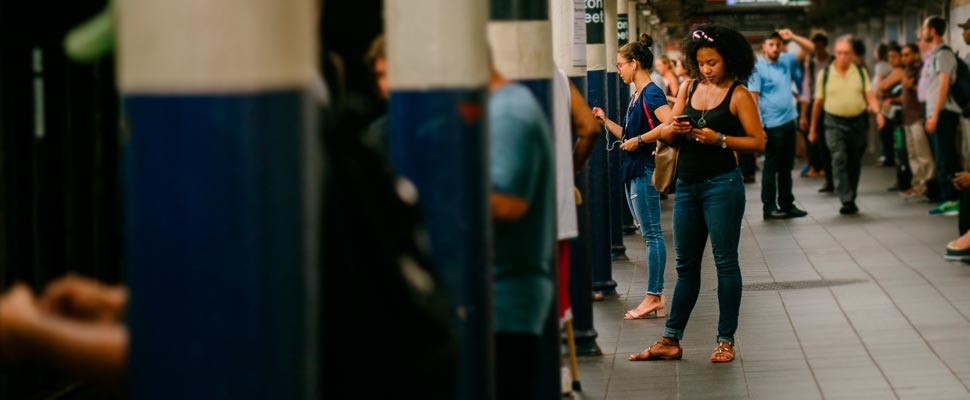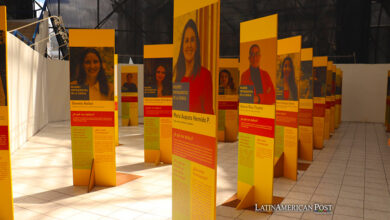‘Our Streets Now’, safe women in public spaces
Comics shows the harsh reality of public sexual harassment of young women who have decided to tell their unknown stories for the "Our Streets Now" campaign.

The strategy was born in England and seeks to guarantee safe public spaces for women. / Photo: Pexels
The Woman Post | María Lourdes Zimmermann
Listen to this article
Leer en español: “Our Streets Now”, mujeres seguras en espacios públicos
The initiative that arose in England and that aims to assert the right of women to feel safe in public spaces, trying to generate changes from education and politics, is today recognized by UN Women and goes around the world.
The protagonist is Maya Tutton, a 21-year-old girl who co-founded the campaign with her 15-year-old sister Gemma. They both sat down one day to talk about their experience and their feelings, channeled their anger and proposed a change as they explain it themselves, to through a petition that has already been signed by more than 250,000 young people. The goal is to reach 300,000 thousand signatures to ensure that a law is established in the United Kingdom that criminalizes street abuse of women.
“Like 90% of women in the UK, we have both faced street harassment. And we are fed up with it ”, the young women explain in the petition.
“Women and girls must feel safe walking the streets, day and night, with the confidence that the law protects them. But in the UK, there is no specific law against street harassment ”they add.
Also read: In Peru more than 2,400 women have disappeared in 2020
Gemma was harassed on the street at age 11, for Maya hearing her little sister's story was heartbreaking and annoying, but the worst thing was realizing that in her country there was nothing to do about it.
As young women, we have become so used to being constantly scared, powerless and hurt that the psychological effects are undoubtedly beginning to have long-term impacts, says Maya.
Being forced to adapt our routes and clothing, and restrict our behavior to feel safe is not okay. Studies show that public sexual harassment can cause long-term emotional and psychological damage, explain young women. Therefore, its strategy is focused on making the need, through the signing of 300,000 thousand young women, to open the way to facilitate a Law, which for them, would be a powerful step to face inequality and maintain the women safe.
Several countries such as France, Belgium and Portugal have already achieved this, but now the turn is for the United Kingdom.
Maya declares, to UN Women, who recognized her work within the framework of the 'I am the Generation of Equality' campaign, that “sexism and age discrimination combine in our society to devalue the importance of voices of young women ”.
“Our activism is crucial to building a more equal world. All forms of oppression are interrelated, so we use the mechanism of intersectionality to make it clear that in order to achieve gender equality, we must also combat racism, homophobia, discrimination against disabled people and other forms of discrimination ”explains Maya .
Our streets have now become a community determined to challenge the myths and taboos that prevent this topic from being discussed, and challenged, in the open.
Sexual harassment in public space during the global pandemic
According to Maya, in recent months they have received many disturbing stories from girls and women explaining how bullying has worsened under the COVID-19 emergency measures. The stories are told by their protagonists and in a didactic and striking way they are published as comics.
The deserted streets have allowed many young women to feel more vulnerable than before. As cases of domestic abuse and online harassment have increased, we have strengthened our campaign against all forms of violence against women and girls, explains Maya, who has established all the relevant information on her website so that young women feel more secure.
We, at 'Our Streets Now' , believe that "building better" is rebuilding a more just and equitable society, free from sexual harassment in public spaces. "Instead of getting back to normal, we have to drive change."
As bars and nightclubs reopen, young women must push for tougher measures against sexual harassment and assault. When they go back to school, campaigning to improve sex education and anti-racist teaching is essential. At universities, having consent workshops, administered online, that teach the entire student body about respect, sex, and violence against women and girls is another important step.
“It is crucial that we ensure that the pandemic does not turn back the clock on women's progress towards equality,” Maya explained to UN Women.




